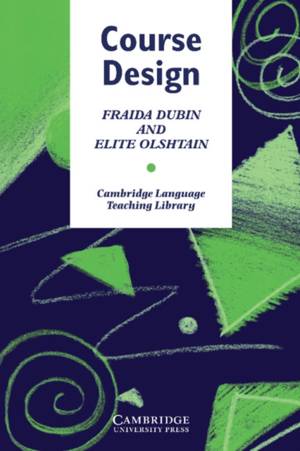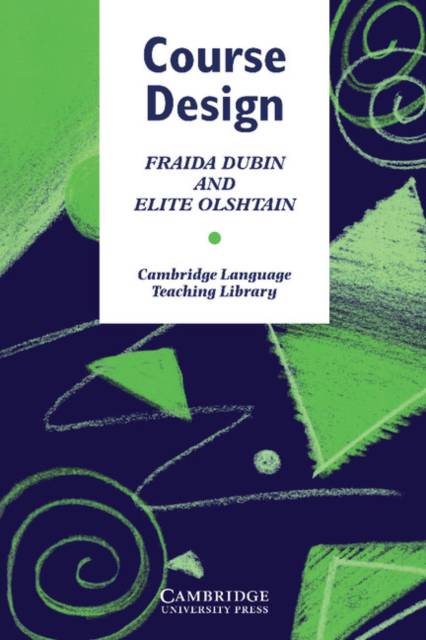
Bedankt voor het vertrouwen het afgelopen jaar! Om jou te bedanken bieden we GRATIS verzending (in België) aan op alles gedurende de hele maand januari.
- Afhalen na 1 uur in een winkel met voorraad
- In januari gratis thuislevering in België
- Ruim aanbod met 7 miljoen producten
Bedankt voor het vertrouwen het afgelopen jaar! Om jou te bedanken bieden we GRATIS verzending (in België) aan op alles gedurende de hele maand januari.
- Afhalen na 1 uur in een winkel met voorraad
- In januari gratis thuislevering in België
- Ruim aanbod met 7 miljoen producten
Zoeken
€ 92,45
+ 184 punten
Omschrijving
Recognizing that teachers are often involved in planning and developing courses as part of their responsibilities, the authors have set out to describe the factors which must be considered in constructing courses and materials. They cover: the fact-finding stage, establishing realistic goals, surveying existing programmes, realizing goals through instructional plans, selecting the shape of the syllabus, and considerations involved in constructing communicative curricula and syllabuses. All of these aspects are considered against current theories of language learning. Examples of different types of materials are discussed, and the process of creating materials is described as the link between the syllabus and the audience. It ends with a survey of the practical issues involved in organizing writing projects. It is intended for teachers (and teachers in training) who may be involved in course planning and materials development either on a larger scale, or simply within their own institution.
Specificaties
Betrokkenen
- Auteur(s):
- Uitgeverij:
Inhoud
- Aantal bladzijden:
- 208
- Taal:
- Engels
- Reeks:
Eigenschappen
- Productcode (EAN):
- 9780521276429
- Verschijningsdatum:
- 26/09/1986
- Uitvoering:
- Paperback
- Formaat:
- Trade paperback (VS)
- Afmetingen:
- 152 mm x 229 mm
- Gewicht:
- 317 g

Alleen bij Standaard Boekhandel
+ 184 punten op je klantenkaart van Standaard Boekhandel
Beoordelingen
We publiceren alleen reviews die voldoen aan de voorwaarden voor reviews. Bekijk onze voorwaarden voor reviews.









